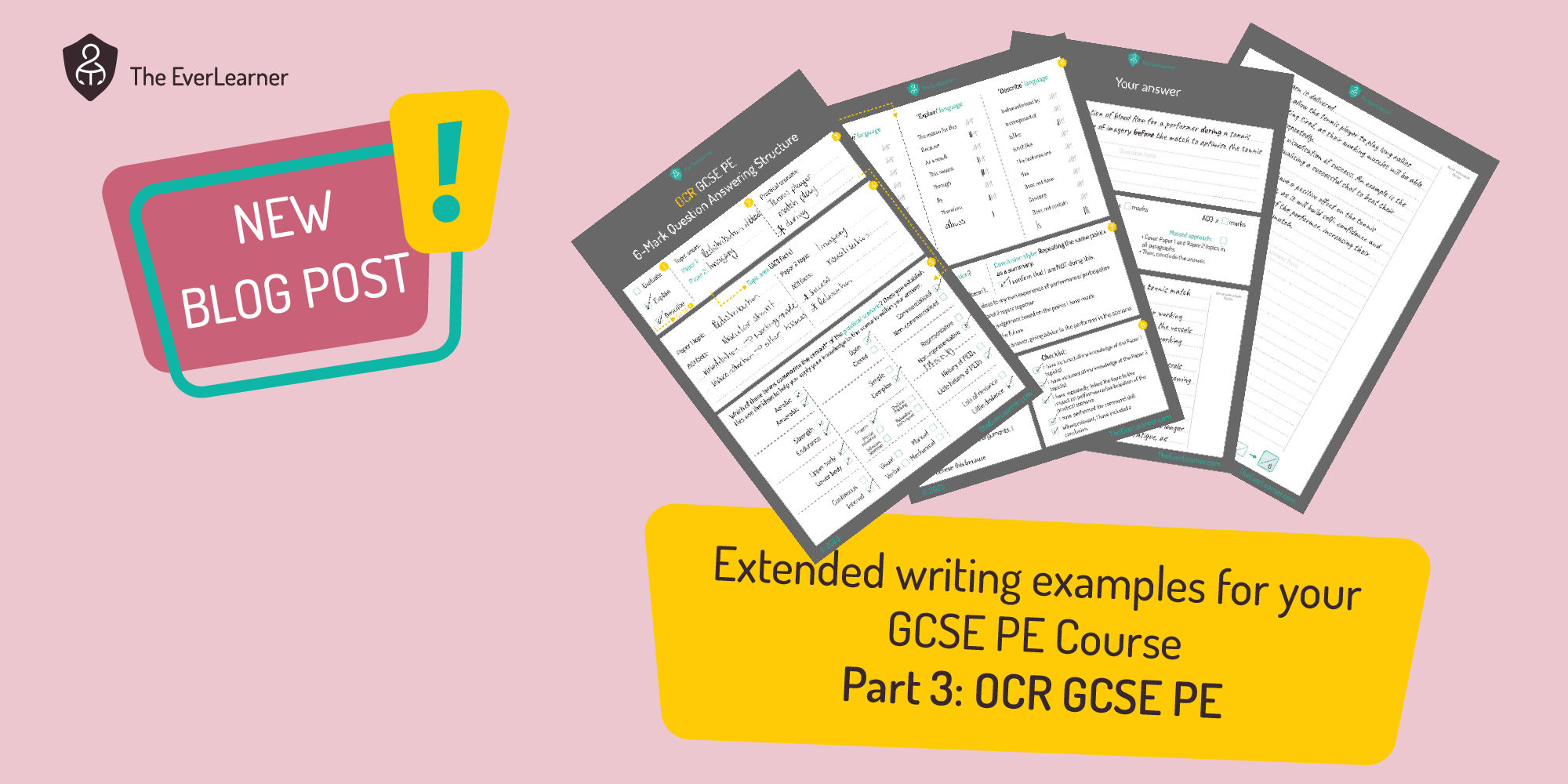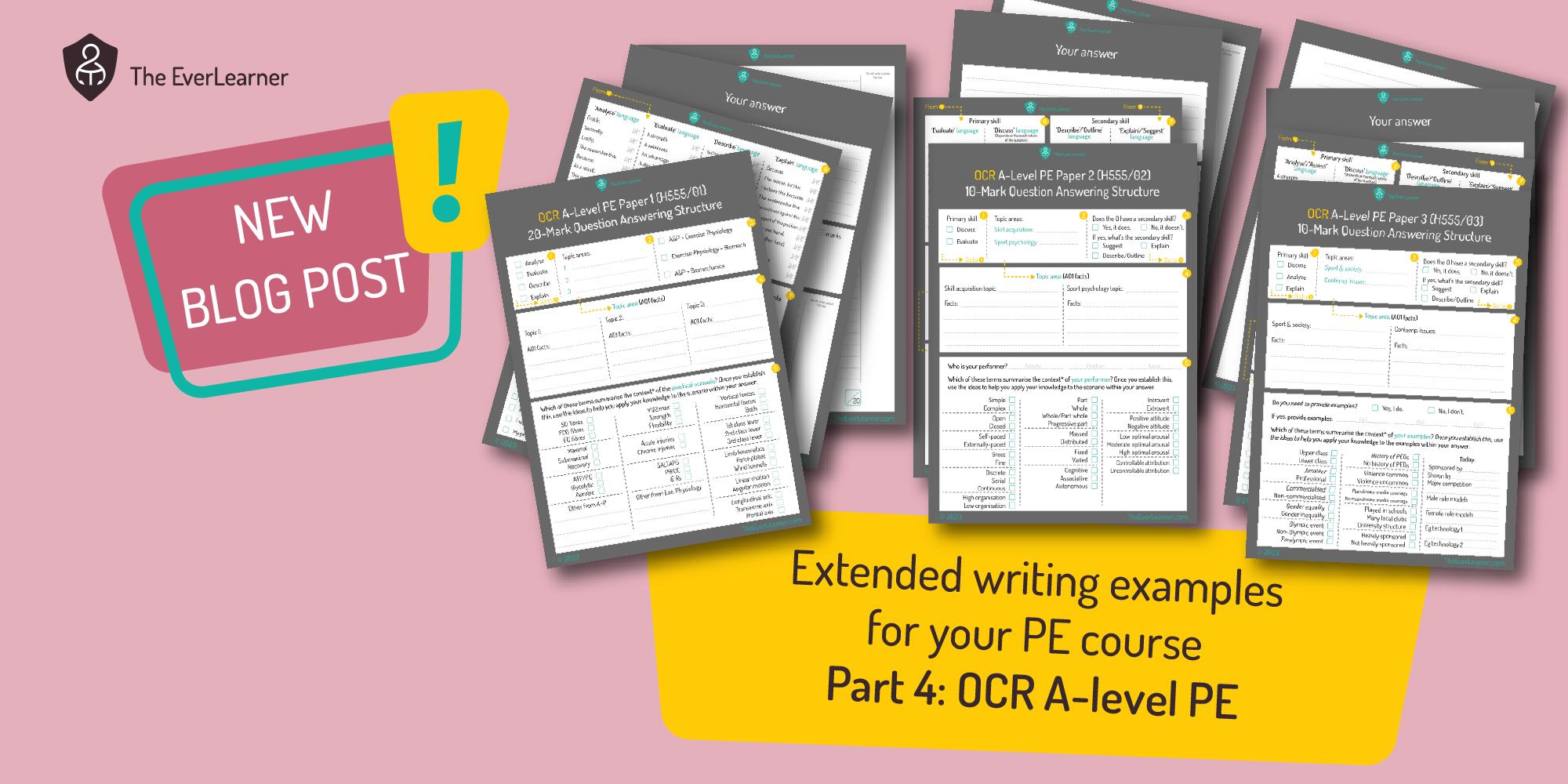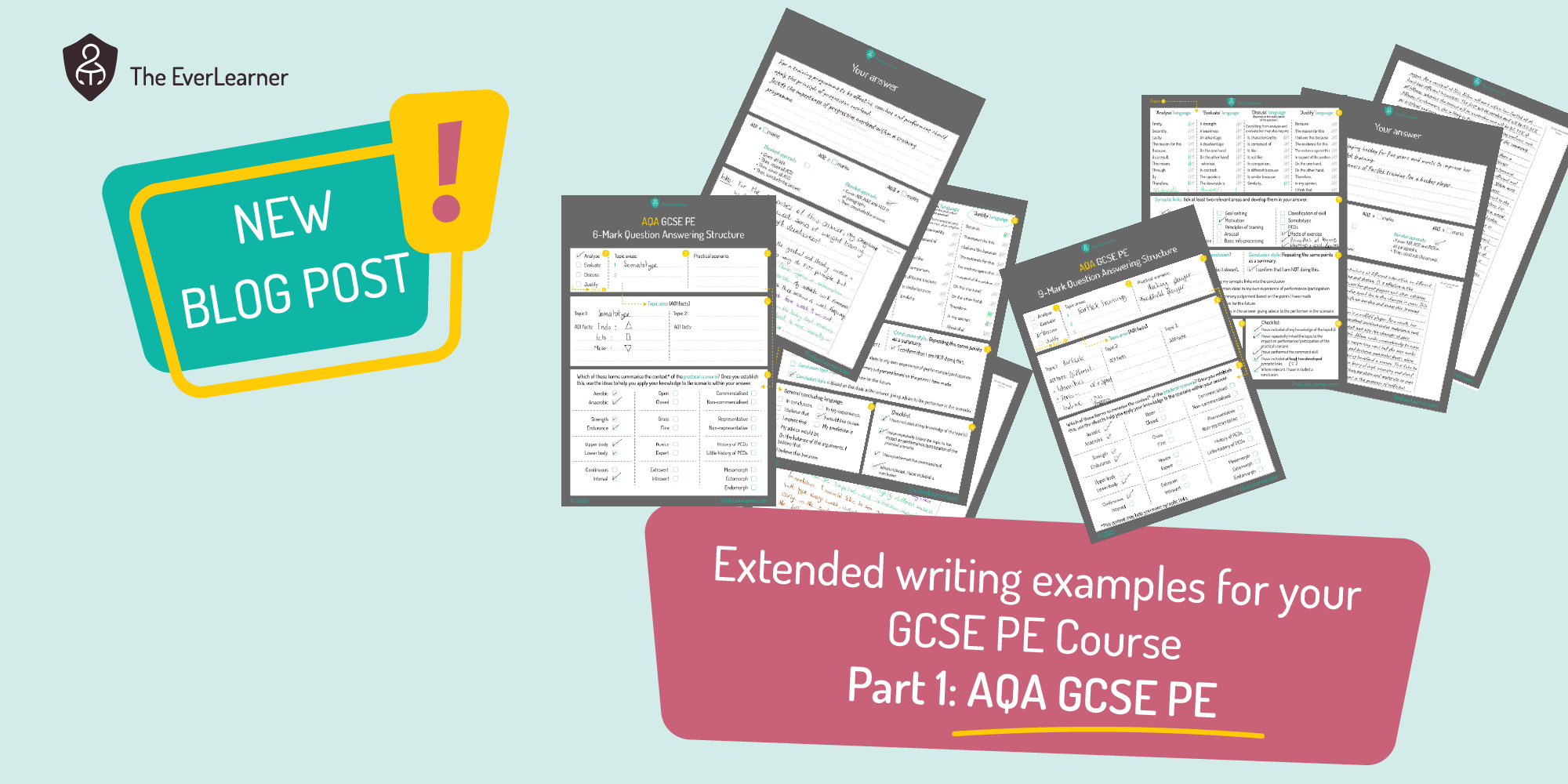Extended Writing in GCSE PE Exams
Welcome to my blog. I write about PE teaching and learning with a focus on classroom-based, theoretical and exam or coursework-based teaching. I post every Wednesday and I encourage you to subscribe to the blog in order to get immediate updates on new releases. Subscribing to the blog is utterly free and always will be.
This week, I am releasing three resources that are aimed at improving student performance on extended writing tasks in AQA, Edexcel and OCR GCSE PE. Each resource is completely free to download but, crucially, is bespoke to its course with no generalisations included. Each resource is very highly exam-board specific.
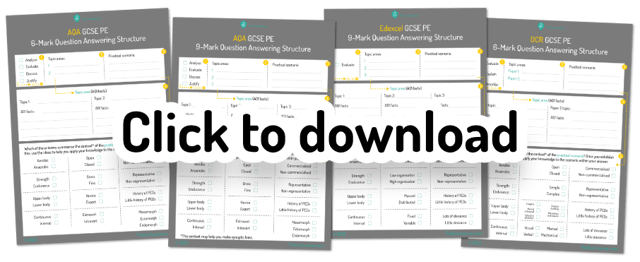 Download your FREE long answer structuring templates
Download your FREE long answer structuring templates
Why am I publishing these resources and why are they free?
Put bluntly, GCSE PE cohorts underperform on GCSE PE exams. I am able to state this based on the average raw mark performance across AQA, Edexcel and OCR GCSE PE exams being less than 41% of total raw marks scored. This means that the average GCSE PE student (this person is hypothetical, of course) realises well under half of all the marks on their PE exams after two years of study on their course.
Furthermore, the extended writing requirement of each GCSE PE exam is one of the areas where students, on average, score less well. Take a look at the analysis below - remembering that the exams in 2022 may be slightly anomalous based on the Advanced Exam Information (AEI) available in that specific year.
Analysis of AQA GCSE PE extended writing
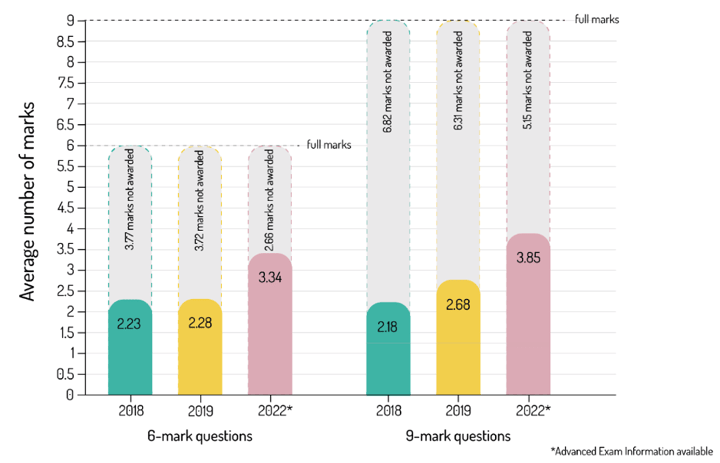
Analysis of *Edexcel GCSE PE extended writing
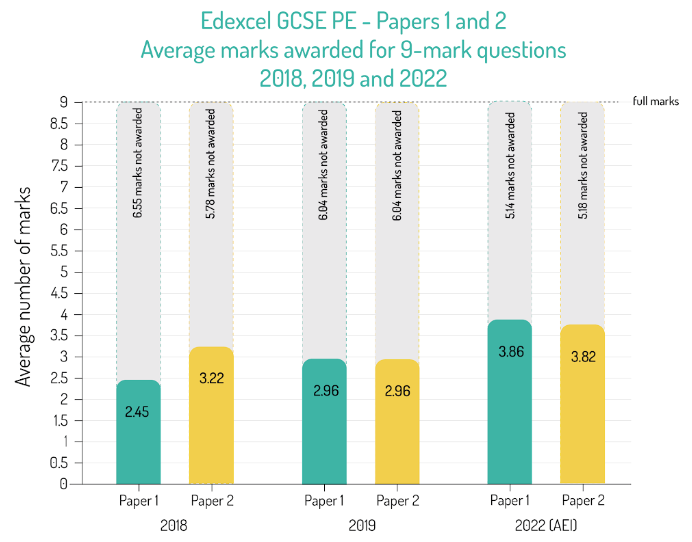
*Please note that, from 2023 onwards, Edexcel GCSE PE exams will only feature one nine-mark question per paper. The data above is based on data between 2018 and 2019, where there were two nine-mark questions per paper.
Analysis of OCR GCSE PE extended writing
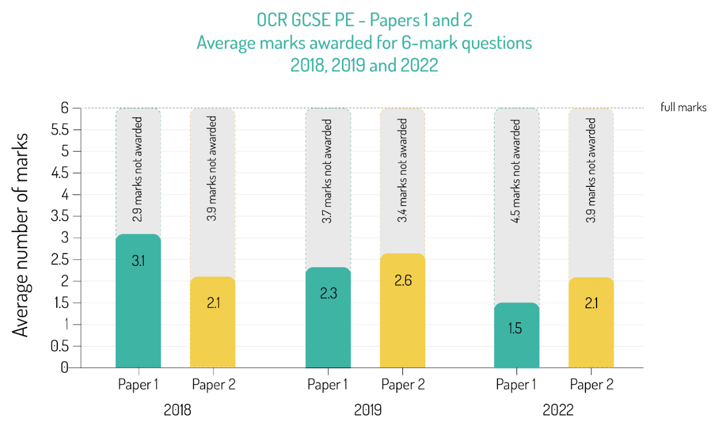
So, the picture is relatively clear. On all three courses, the majority of marks available for extended writing are not realised by GCSE PE cohorts. Put simply: GCSE PE students, on average, are not well prepared to write effective extended-writing pieces.
The statement you have just read may jar you a little. If you are a PE teacher, you may be feeling that your extended writing preparations are excellent. I am confident this is the case in many, many centres. What I am reporting above is the average (median) performance of entire cohorts and, if you have a formula that works, please keep using that formula! My aim is simple:
This is the core aim but I also want to qualify a more personal point of view. I also believe that after (typically) two years of study, PE students should be capable of demonstrating their acquired knowledge and skills on these questions. It irks me that our cohorts, on average, are struggling with these skills. Whilst there may be external factors, the best way to solve this is to look at our own learning and teaching processes as controllable factors and to improve them. Hence me posting these resources for free.
The fact that they are free should not be interpreted as them being casual or ill-considered. On the contrary, I stand by these resources as world-class educational stimuli that, bluntly, are far superior to a range of products sold by PE companies to schools. I urge each and every centre to abandon those paid resources and switch to those that I am providing here. There is a danger that because they are free, teachers will undervalue them.
A word of a warning!!
I am releasing this blog post in mid-April 2023, almost exactly one month prior to the Paper 1 exams for AQA, Edexcel and OCR GCSE PE students. I am cautious to suggest that my resources should be used with year 11 students because of the proximity of exams and the likelihood of an overwhelming experience for year 11 students. By far the best way to use these resources is to introduce them early (for example, in Year 10) and encourage the students to grow in confidence over time. Equally, some teachers will simply want to give opportunity to their year 11 students and I fully understand this. Perhaps the best thing to do is to discuss the resource with your year 11s and then make an informed decision about whether to use them.
Enjoyed the blog? Want to know more about these resources? Why not have a listen to this podcast episode where my colleague Marta and I discuss the resources and the reasons for them? ☝️
%20Text%20(Violet).png)
